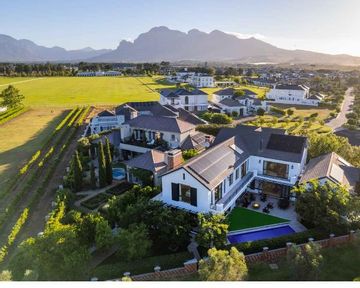What you need to know about the interest rate and what it means for you
As expected by many economists and market commentators, The South African Reserve Bank's (SARB) Monetary Policy Committee (MPC), decided to keep the interest rates unchanged at levels last seen half a century ago. But what does that mean for you?
What is the repo rate?
The repo rate is the rate at which South Africa's central bank lends money to commercial banks, these commercial banks then lend money to consumers. The repo rate is linked to the commercial banks' prime interest rate - the rate commercial banks charge consumers.
When you take a home loan, for example, a change in the repo rate affects you. The interest charged on your loan will either increase or decrease, depending on whether the Reserve Bank hikes or cuts the repo rate, as well as whether you opted for variable or fixed interest rates on your loan.
The repo rate and inflation
The repo rate also influences inflation, and in fact, these two economic indicators have an inverse relationship. Inflation is likely to be muted when interest rates are increased and vice versa.
What do the property experts say?
The Reserve Bank's decision to retain the repo rate at 3.5% (home loan base at 7%) is good news and provides vital stability when most needed, says Samuel Seeff, chairman of the Seeff Property Group.
Adding that "aside from boosting economic activity and providing debt relief, the interest rate has been the main driver of the positive activity in the property market over the last year."
He highlights that while property transactions remain above pre-pandemic levels, the current monthly average of around 20,000 is still about 25% below what would constitute normal market conditions when compared to the last twenty-odd years and about 50% below the 2005-2007 boom period.
Dr Andrew Golding, CE of the Pam Golding Property Group has said that against a backdrop of a weaker rand and upside risks to inflation, it is widely anticipated that the next move in interest rates will be a hike. While some analysts believe interest rates will begin to rise later this year, the consensus view is that the current economic headwinds will delay the first hike until early-2022.
"The resilience of South Africa’s residential property market continues to be illustrated in Gauteng, where activity remains robust. Undoubtedly, the Covid-19 third wave created an increasingly challenging trading environment, further exacerbated by the past week’s events, however, the market continues to respond well, especially to properties that are correctly priced - a trend evident across suburbs as well as in estates," he said.
According to the latest Pam Golding Residential Property Index, national house price inflation accelerated to 5.2% in June. At +6.2%, the Western Cape is again the regional leader among the major provinces, followed by Gauteng at +5% and KwaZulu-Natal at +4.7%.
Says Sandra Gordon, Pam Golding Properties senior research analyst: “Growth in lower-end prices (below R1 million) continues to accelerate, reported at +7.6% in June. And although growth in freehold prices (+5.9% in the first half of 2021) continues to outperform sectional title (+3%), the gap has again narrowed as freehold price growth peaks and sectional title price growth continues to rise. Notably, the coastal house price premium widened to +2.5% in March 2021 after averaging at +0.3% in 2020.”
Adrian Goslett, Regional Director and CEO of RE/MAX of Southern Africa, says that this was a prudent decision, as many have entered the property market owing to record-low interest rates. Subsequently, increasing rates at this meeting could have had some concerning consequences for homeowners who are already being pinched by the political unrest and harsher lockdown restrictions during the third wave.
Homeowners are still cautioned to leave room in their budget for potential interest rate increases when planning for the year ahead. “Though times are tough, homeowners ought to prioritise their home loan instalments to avoid facing the risk of losing their home. Before things get too tough, speak to your financial institution. Some homeowners might be under the impression that the bank will repossess their property as soon as they communicate their distress. However, this is not the case. There a few ways that the bank might help, such as rescheduling the debt, offering some advice on the right steps to take, or renegotiating the term of the loan from 20 years to 30 years. As a final option, they might recommend placing the home on their distressed sales list to help the homeowners get out of debt. The homeowners can then use this money to purchase a home they can afford,” Goslett explains.
Need a home loan?
We can help you get ready to buy your dream home by getting prequalified and applying for a home loan

